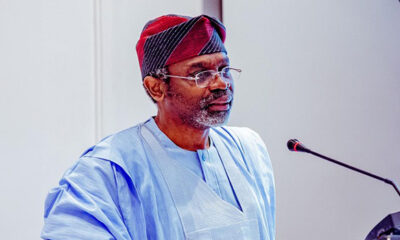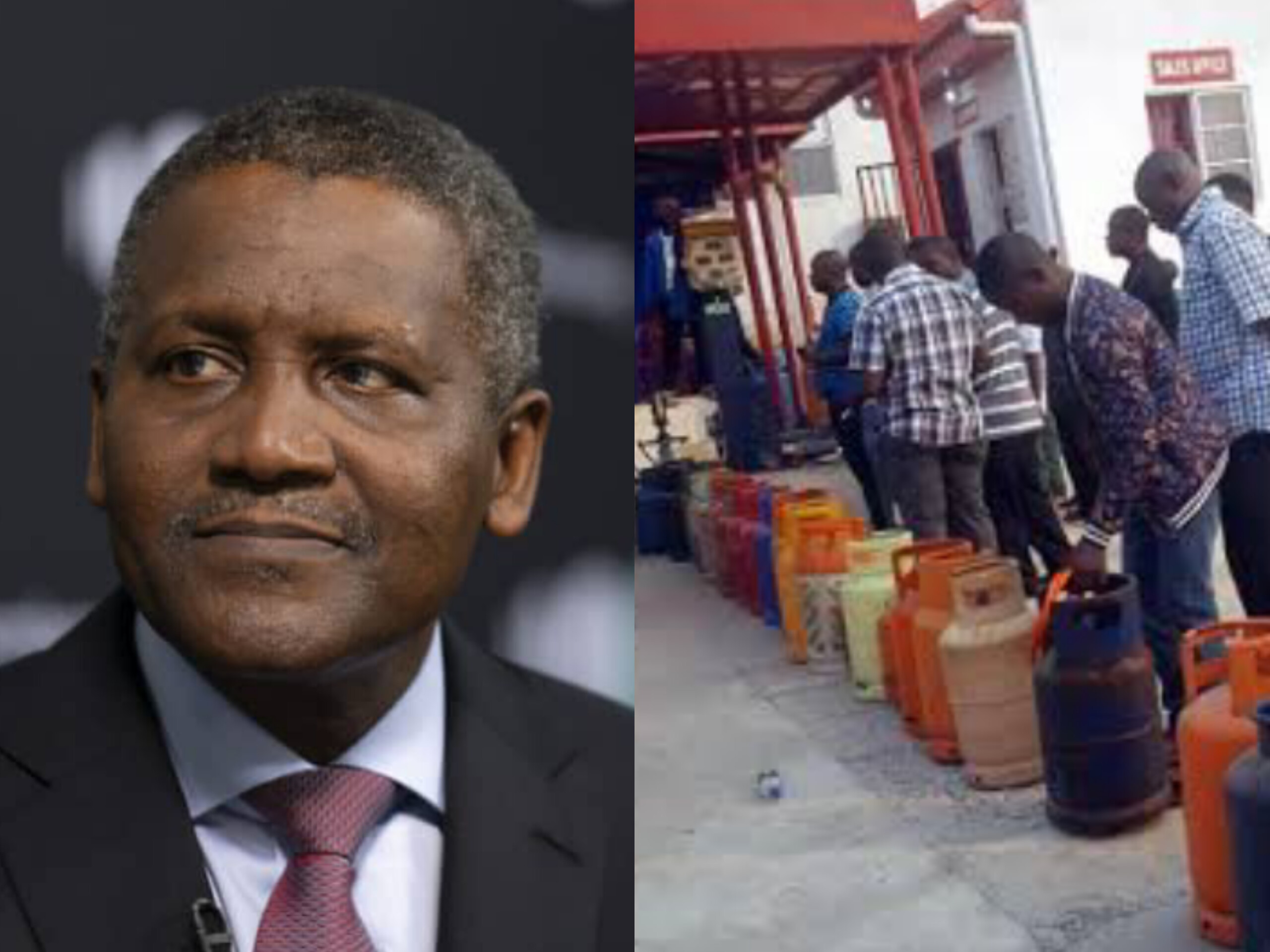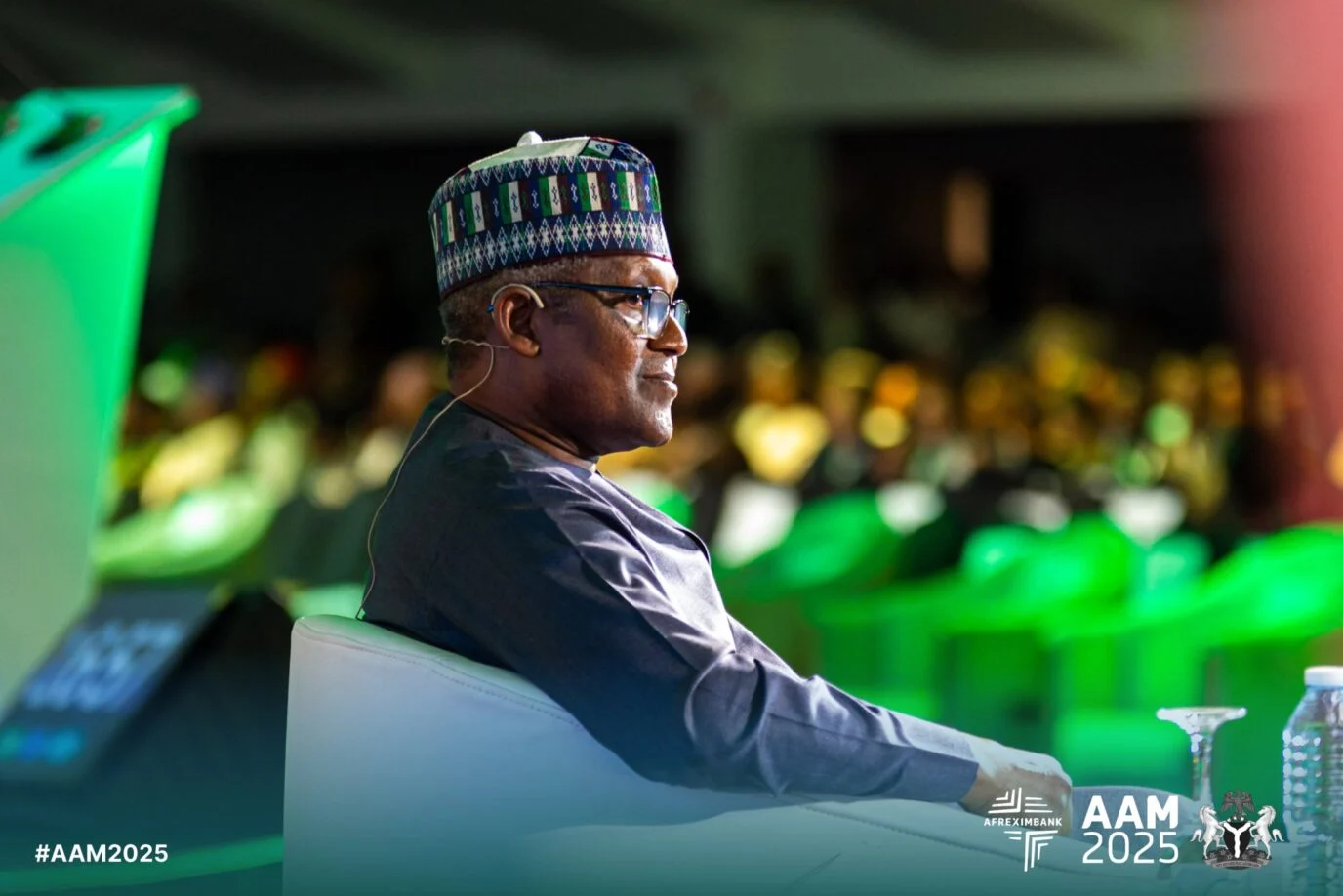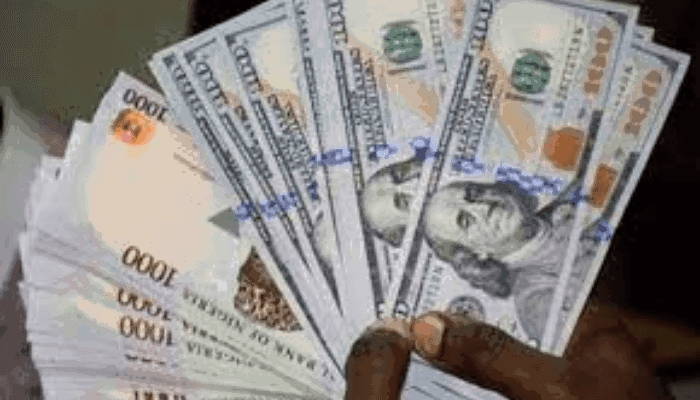President of the Dangote Group, Alhaji Aliko Dangote, has revealed his intention to slash the cost of Liquefied Petroleum Gas, also known as cooking gas. He further stated that if current distributors resist the price reduction, he will begin selling directly to consumers.
Industry players, however, have opposed the proposal, accusing Dangote of attempting to dominate the LPG market. They voiced their concerns on Monday, fearing the possibility of monopolistic control.
During a recent inspection of his refinery by both local and international visitors, Dangote pointed out that the current cost of cooking gas is too high and beyond the reach of ordinary Nigerians who rely on firewood.
He mentioned that the refinery is now capable of producing 22,000 tonnes of LPG daily, and efforts are underway to increase output for local distribution, especially as more Nigerians adopt gas for cooking.
Addressing members of the Lagos Business School CGEO Africa at his Lekki refinery, Dangote stated, “The one that we didn’t write, which you must have seen, is LPG. Currently, we do LPG of about 2,000 tonnes per day. You know Nigeria is gradually moving to the usage of LPG. But I believe it is expensive, but right now we’re trying to bring down the price and make it cheaper.”
Dangote cautioned that “if the distributors are not trying to bring it down, we’ll go directly and sell to the consumers, so that people will now transit from firewood or kerosene to LPG for cooking.”
It was earlier reported that Dangote plans to begin nationwide direct distribution of petrol, diesel, and aviation fuel in August, using 4,000 CNG-powered buses.
At present, cooking gas sells for between N1,000 and N1,300 per kilogramme. Dangote aims to reduce this to make it more accessible.
Operators kick
LPG market stakeholders appear displeased with Dangote’s plan to shake up the sector.
In an interview with our correspondent, the former Chairman of the LPG and Natural Gas Downstream Group of the Lagos Chamber of Commerce and Industry, Godwin Okoduwa, labelled the move monopolistic.
Okoduwa stressed that Dangote must acknowledge the efforts of investors who expanded the LPG market from 70,000 metric tonnes in 2007 to over 1 million metric tonnes by 2022. He emphasized the importance of cooperation.
“I think it’s monopolistic. I think a market should be protected to encourage growth. The LPG industry in Nigeria grew from 70,000 metric tonnes in 2007 to over 1.3 million tonnes in 2022. That was done by collaboration — collaboration with the Federal Government, the NLNG, and offtakers. Everything was done in collaboration. It grew from 70,000 to 250 to 800, and now over a million,” Okoduwa said.
He argued that monopoly cannot drive growth, but collaboration can. “Today, we are just under 5kg or 6kg per capita consumption in terms of LPG. Other countries are doing much more. South Africa is doing double digits, Morocco and Tunisia are doing double digits. We can do much more.
“So, we should, as an industry and as a country, focus on how to grow the LPG industry and not allow someone (to frustrate the players). Yes, he has invested; yes, it’s a capital economy, but he should not be allowed to frustrate the players.
“There are people who have spent money, spent resources, even business and development, and someone just comes in to reap from the work that has been done. I’m sure he wouldn’t have built if there had not been an existing market. The work has been done, he should respect the market and let us grow. It shouldn’t be a zero-sum strategy. It should be collaborative,” he said.
He recommended that despite having a significant advantage, Dangote should pursue collaboration.
“My advice to him is that the pie can be bigger. The Nigerian market is about 1.3 million tonnes. The Nigerian LPG market can be 5 million tonnes. He should work towards collaboration rather than competition, because at the end of the day, everybody benefits,” he added.
When told that Dangote’s main goal is to lower gas prices so everyone can afford it and reduce firewood use, Okoduwa responded, “I have news for him. He should go to the Northeast, where you have the least consumption of LPG. He should go to the Northeast and start developing the LPG infrastructure there. I think we will tell him thank you for that.”
In a similar vein, the Executive Secretary/Chief Executive Officer of the Nigerian Association of Liquefied Petroleum Gas Marketers, Bassey Essien, expressed doubt about Dangote’s ability to sell gas directly to consumers or significantly reduce prices.
“I am saying that it’s unrealistic. What is the position with PMS? Has the refinery been able to sell petrol directly to you and me into our cars at a very cheap rate?” Essien asked.

 BIG STORY5 days ago
BIG STORY5 days ago
 BIG STORY2 days ago
BIG STORY2 days ago
 BIG STORY19 hours ago
BIG STORY19 hours ago
 BIG STORY2 days ago
BIG STORY2 days ago
 BIG STORY4 days ago
BIG STORY4 days ago
 BIG STORY2 days ago
BIG STORY2 days ago
 BIG STORY19 hours ago
BIG STORY19 hours ago
 BIG STORY4 days ago
BIG STORY4 days ago





















